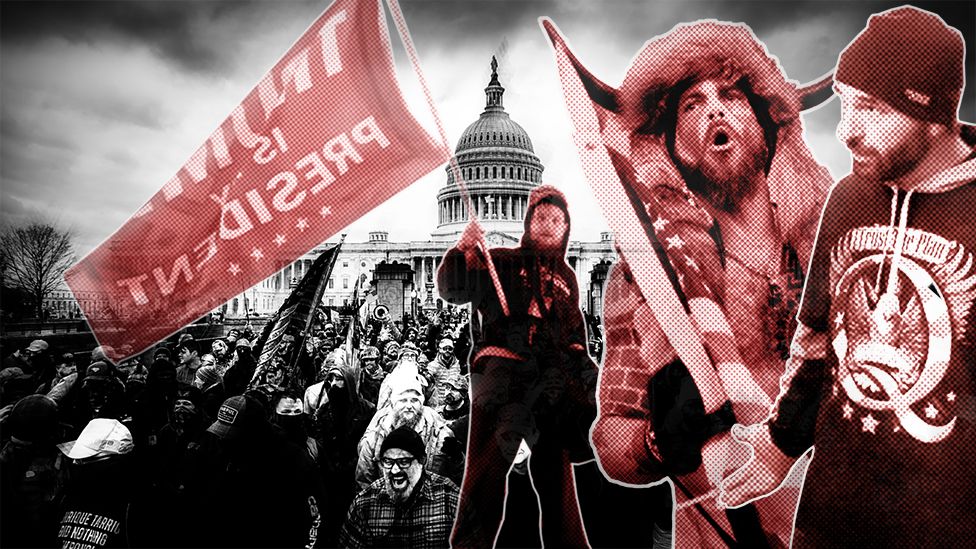State election officials have told how supporters of Donald Trump threatened them and their families after refusing to help the former president reverse his 2020 election defeat.
The congressional committee investigating the deadly Jan. 6, 2021, Capitol riot by Trump supporters shifted to focus on Tuesday on Republican pressure on state officials as he tried to stay in the White House.
It was the fourth of at least six public hearings the nine-member Select Committee is holding this month over its nearly year-long investigation into the attack on the Capitol by thousands of Trump supporters. At the same time, Vice President Mike Pence met with members of Congress to formally confirm Mr. Trump’s defeat by Democrat Joe Biden.
“We’ve received more than 20,000 emails and tens of thousands of voicemails and text messages, saturating our offices and making us unable to work, at least not communicate,” said United States House Speaker Rusty Bowers. Arizona, to the US House of Representatives. of the Select Committee of Delegates investigating the attack on the Capitol.

He said the bullying continued, with demonstrations in his home, clashes with neighbors, and other threats and insults that continued even when his daughter was seriously ill.
“It was troubling, it was troubling,” said Mr. Bowers — who had campaigned for Trump in 2020 and said he had wanted him to be re-elected — in a broken voice.
Bowers described conversations with Trump and his closest associates, including his attorney Rudy Giuliani and adviser John Eastman, who urged Bowers to reject the election results.
“You’re asking me to do something that goes against my oath, and I won’t break my oath,” Mr. Bowers said, recounting a conversation with Mr. Giuliani.
At a vociferous rally on Jan. 6, Trump urged his supporters to march to the Capitol.
He had seized that date—when Mr. Pence was to approve the election—as one last chance to hold onto the White House, despite his loss in the polls.
“What happened to Mike Pence was not an isolated part of Donald Trump’s plan to undo the election. In fact, pressuring officials to deny their oaths was a fundamental part of the playbook,” said Democratic Representative Bennie Thompson, committee chair.
Mr. Thompson referred to a hearing last week that focused on the pressure Trump and his associates put on Mr. Pence to oppose the formal certification of the outcome of the November 2020 presidential election.
The commission also played audio and video recordings of close Trump associates — and the president himself — urging state officials to reject the election results.
Georgian Secretary of State Brad Raffensperger and Gabriel Sterling, chief operating officer at the office of the Secretary of State for Georgia, were asked to testify.
The committee’s seven Democrats and two Republicans have used the hearings to build their case that Mr. Trump’s attempts to undo his defeat amounted to illegal behavior far beyond normal politics.
Biden defeated Trump in Georgia and Arizona in November 2020, overthrowing two states that had previously supported Republicans in presidential elections.
Mr. Trump called Mr. Raffensperger on Jan. 2, 2021, and told Georgia’s top election official in a taped conversation to “find” enough votes for Georgia to win.
Mr. Raffensperger is still a frequent target of Mr. Trump’s criticism.
The Secretary of State nevertheless stopped a Trump-backed challenger, Jody Hice, a member of the Republican House, from winning the Republican Party primary while running for reelection last month.
Mr. Trump has denied doing anything wrong but reiterated his claims that he only lost because of widespread fraud that took advantage of Mr. Biden.
US state and federal officials have dismissed claims of widespread irregularities in the 2020 vote.
Trump and his supporters — including many Republican members of Congress — dismissed the Jan. 6 panel as a political witch hunt. Still, the panel’s supporters say it’s necessary to investigate a violent threat to democracy.

